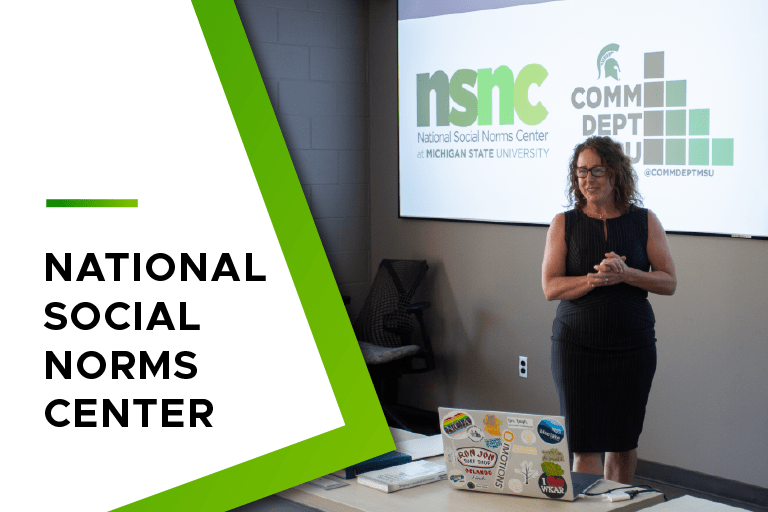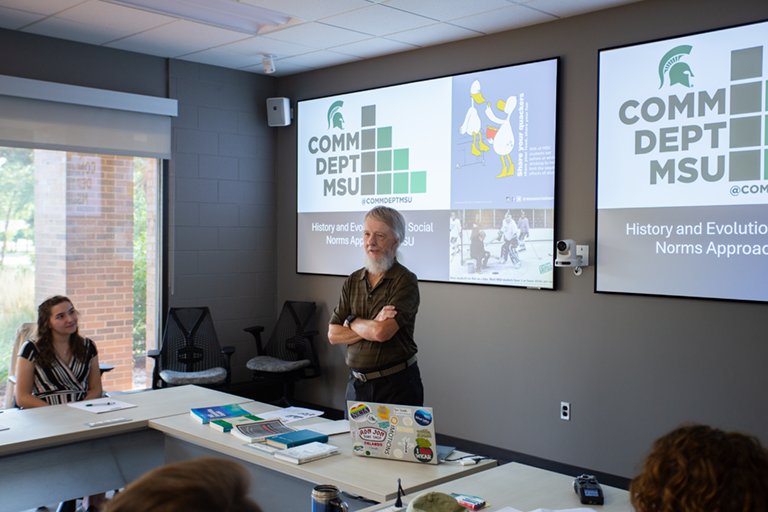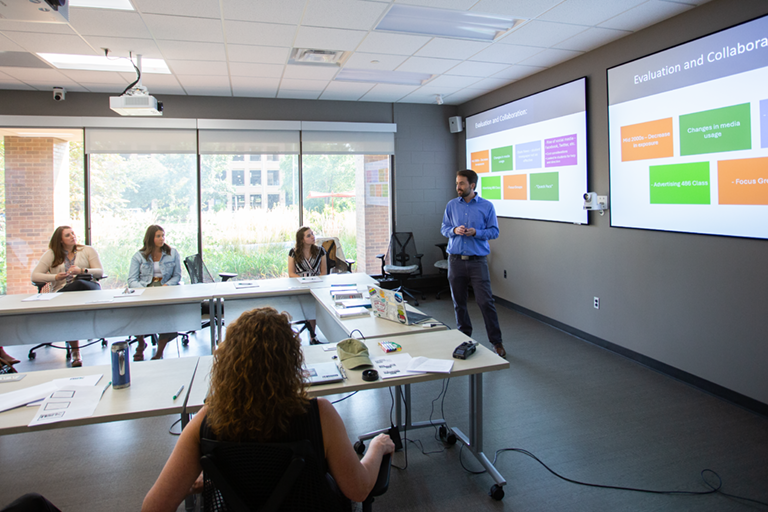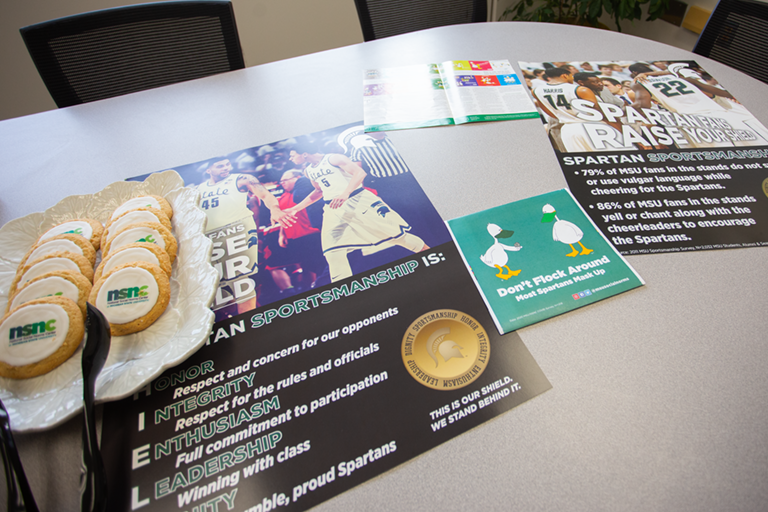On Wednesday, September 11, the National Social Norms Center (NSNC) held a launch event to celebrate its establishment in Michigan State University’s Department of Communication.
Talks of involvement with this center had started as early as 1997 between Dennis Martell, former director of Health Promotion at MSU and current executive director of the center, former communication department chair Chuck Atkin, who passed in 2012, and University Distinguished Professor Sandi Smith.
“I was in graduate school studying under their direction at the time,” said Monique Turner, principal investigator of the National Social Norms Center and department chair, at the launch event. “To come back all this time later and to bring the center into the department brings me joy that is actually hard to quantify.”
Before the NSNC was established at MSU in 2016, the center was known as the National Social Norms Resource Center and was founded at Northern Illinois University. It later became the National Social Norms Institute and was housed at the University of Virginia for 10 years. Despite these transformations over the years, MSU has remained consistent in its involvement in the center by continuously driving research to make college campuses a safer, healthier place for students. The focus of the center is based around the social norms approach.
The social norms approach — a communication strategy co-founded by Alan David Berkowitz, now a consultant at the NSNC — is used to correct misperceptions about “what is common” using a data-driven, positive, efficacy-focused approach to gradually get people to adjust their perceptions toward what the norm of a particular behavior actually is.
“The social norms approach is the science of the positive,” said Martell. “It does not tell people what to do, it tells them what their peers do and allows people to chart their own course when thinking about or acting on a certain behavior.”
Using this approach, the center has implemented the longest running funded social norms campaign in America on MSU’s campus. The Duck Campaign — a campaign concept that was actually born out of a 2006 ADV 486 class under the guidance of Bruce Vanden Bergh and MSU Health Promotion staff — was planned, designed and marketed by the NSNC’s current Director of Communication and Engagement Andrew Poole and the rest of the MSU Social Norms team, and officially launched in 2008. The funding for this new campaign originated from a U.S. Department of Education Model grant that aimed at studying celebratory drinking behaviors in college students.
It was through this grant that Martell and his fellow researchers found that 35% of the population of MSU students were drinking only on celebratory occasions. The Duck campaign was launched to get a deeper understanding of student alcohol use on campus and to challenge misperceptions that may link to higher risk consumption.
“To have the center located at MSU is validating and a testament to the work of all who have contributed to creating a sustainable, successful social norms alcohol education campaign here at MSU for the last 20+ years,” said Poole.
The results of this and other campaigns pioneered by researchers at the center have been positive over the years.
“Our data is clear that safer behaviors have increased over the course of our campaign(s) and risky behaviors have decreased,” said Turner. “It goes without saying that this is wonderful for our communities.”
These accomplishments and the official establishment of the center at MSU have allowed the team to continue this positive reach as the center now offers fee-based consultation and assistance for other schools, communities, and organizations that are interested in evaluating a scenario or situation using the social norms approach. The applications of the approach can include a wide variety of issues including substance abuse prevention, violence prevention, climate sustainability, and traffic safety.
“The center will continue to support communities by doing the research and helping communities realize health by helping to correct misperceptions and communicating to the members of the community protective behaviors, as well as what the community really does and thinks about an issue,” said Martell.
By: Casey Halas




